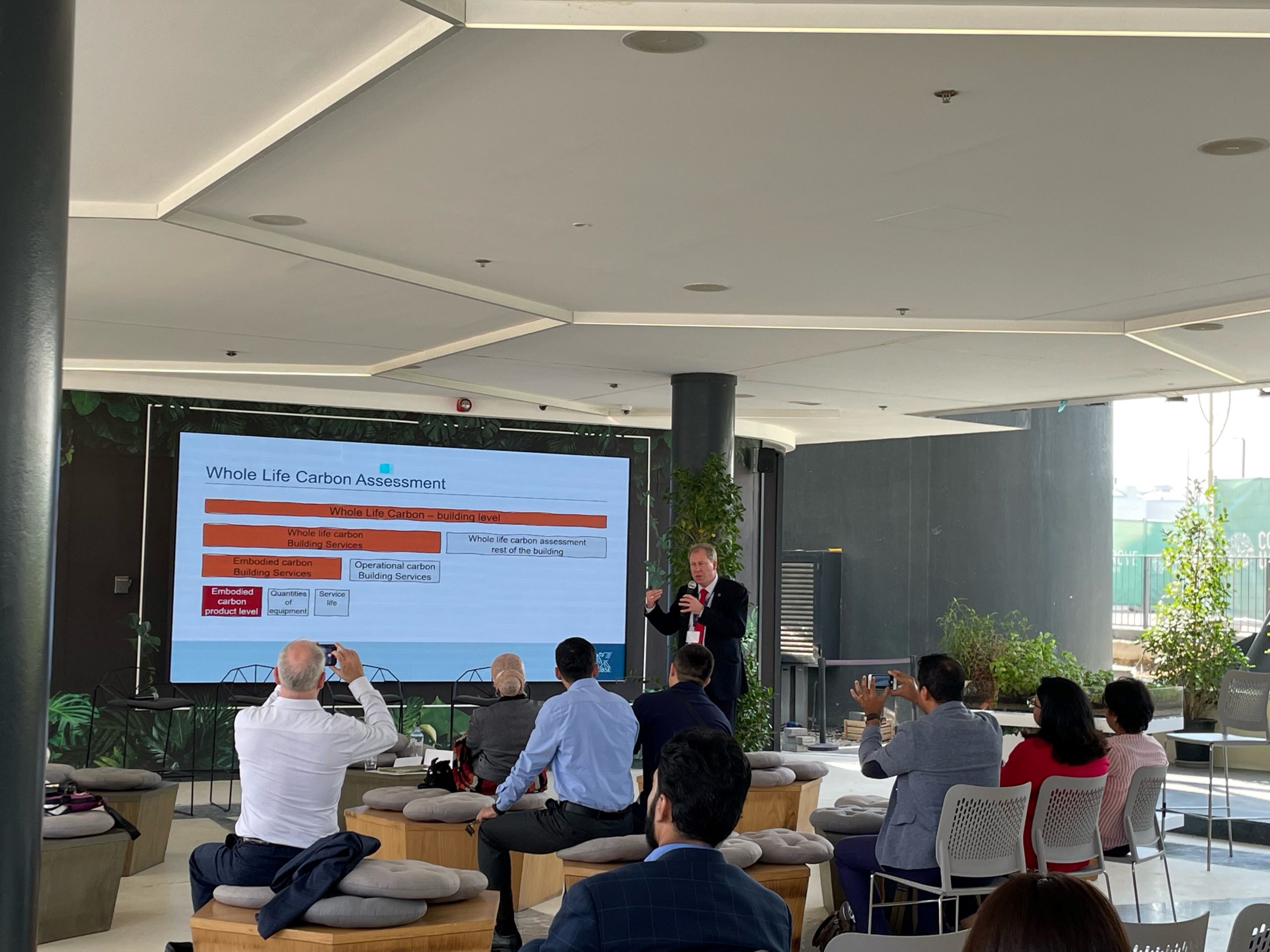
Engineering leadership, the net zero agenda, embodied carbon and climate resilience were among the issues addressed by CIBSE President Adrian Catchpole and CEO Ruth Carter when they represented the Institution at COP28, in Dubai, in December.
The pair spoke at a number of sessions, and participated in panel discussions on efficiency and reduction of embodied emissions in building, and the impact of decarbonisation on fostering good health and wellbeing in green cities and communities.
Their presence helped raise the profile of the work of CIBSE and its members, particularly the TM65 embodied carbon methodology, which has had global impact.
Catchpole and Carter acknowledged the value of being able to contribute to global discussions and shape attitudes to embodied carbon and climate resilience.
Catchpole said: ‘I felt the built environment was out in force, with a determination to see action – it is no longer about how to do it, but how to do it quickly. We need further regulation from government to accelerate the impact, but we now have the tools and ambition to deliver.’
As part of their visit to the UAE, they visited Heriot-Watt University, Dubai, and University of Birmingham Dubai, while Catchpole also signed a memorandum of understanding between CIBSE and the Society of Sustainability and Green Materials, agreeing to collaborate to promote membership and shared priorities.
Their trip was rounded off with the CIBSE UAE Annual Dinner and Awards, details of which will be published in the February edition of CIBSE Journal.
